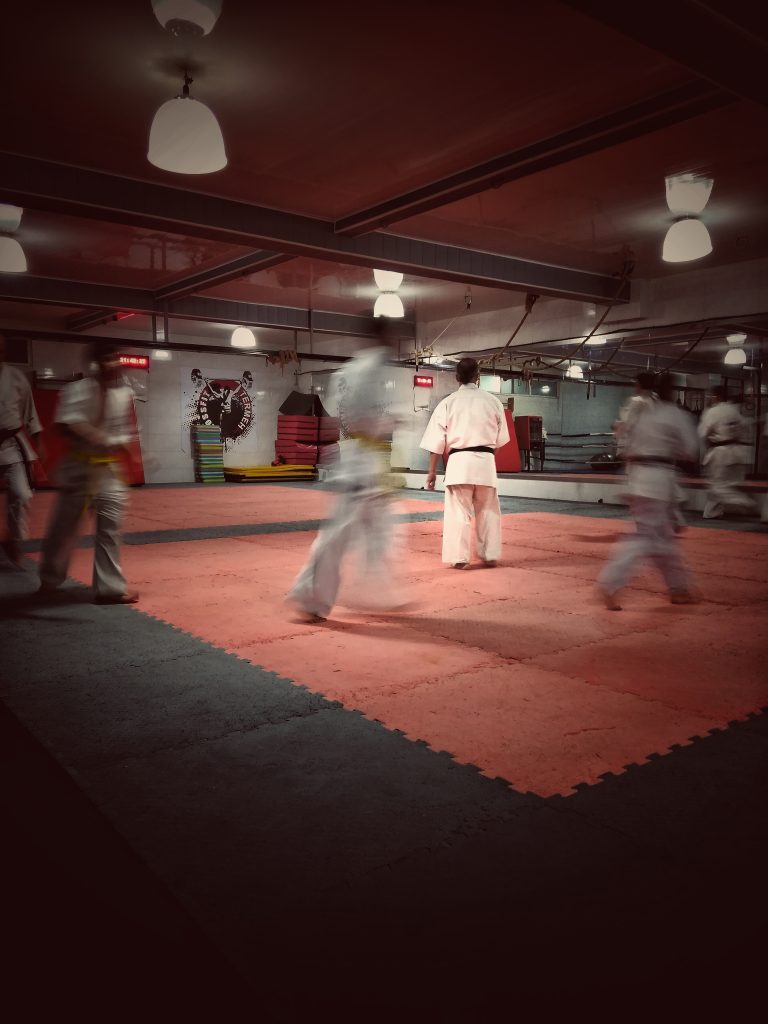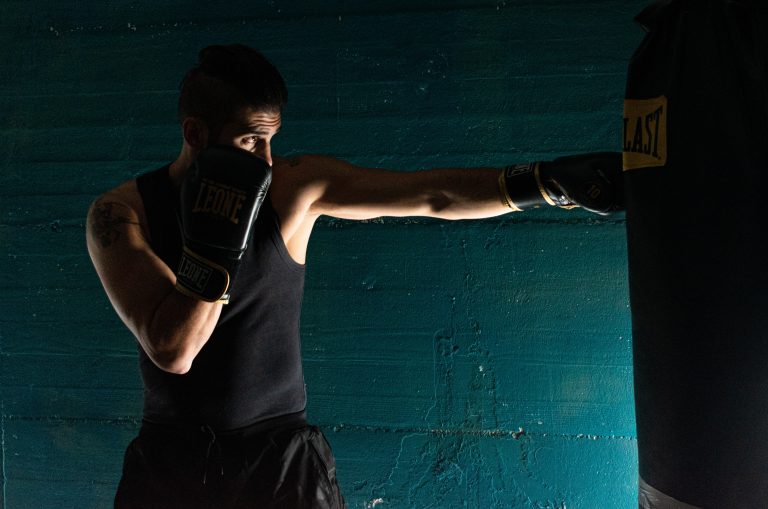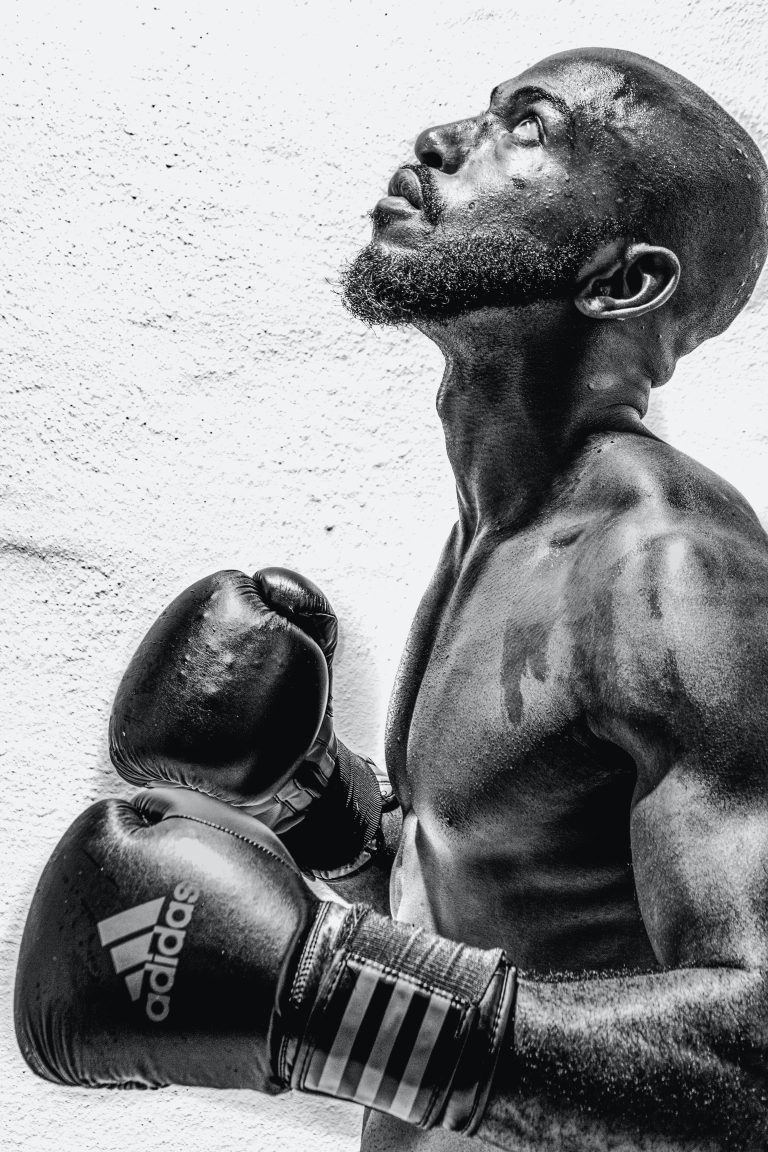How to Speak Karate in English: A Beginner’s Guide
Karate is a popular martial art that originated in Japan. It is known for its powerful and fast strikes, as well as its intricate forms or kata. While the traditional language of karate is Japanese, many practitioners around the world prefer to use English terminology. This makes it easier for people worldwide to communicate and learn from one another. In this article, we will cover the basics of how to speak karate in English, with a focus on proper pronunciation and terminology.
1. Basic Terminology
Before diving into the technical terms of karate, it’s essential to know the basic vocabulary used in class. Whether you are a beginner or a seasoned practitioner, using the correct terminology is crucial for proper communication with others. Below are some of the most common words and phrases used in karate:
- Kiotsuke – Attention or stand at attention. It is the formal way to start a class or command.
- Rei – Bow or show respect.
- Kihon – Basic techniques such as punches, kicks, and strikes.
- Kata – A sequence of movements, forms or patterns. It is usually practiced alone to improve technique and form.
- Kumite – Sparring, a practice competition between two people.
- Hajime – Begin or start.
- Yame – Stop.
- Osu – A word of acknowledgement or respect. It is typically used at the end of a conversation or training session.
2. Numbers in Karate
In karate, counting is an essential part of the practice. It helps with timing, rhythm, and precision. Therefore, it is vital to learn how to count in English. The English numbers used in karate are:
- One – Ichi
- Two – Ni
- Three – San
- Four – Shi or Yon
- Five – Go
- Six – Roku
- Seven – Shichi or Nana
- Eight – Hachi
- Nine – Ku or Kyu
- Ten – Ju
3. Basic Karate Techniques in English
Karate is known for its powerful strikes, kicks, and blocks. Here are some of the most common basic techniques used in karate:
- Choku-Zuki – Straight punch
- Tsuki – Punch
- Gyaku-Zuki – Reverse punch
- Mae-Geri – Front kick
- Mawashi-Geri – Roundhouse kick
- Ushiro-Geri – Back kick
- Gedan-Barai – Low block
- Jodan-Uke – High block
- Gyaku-Tsuki – Reverse punch
4. Proper Pronunciation in Karate
Proper pronunciation of karate terminology is crucial for clear communication and respect for tradition. Below are some of the most common karate terms and their English pronunciations:
- Karate – Kuh-rah-tay
- Gichin Funakoshi – Gee-chin Foo-nuh-koh-shee
- Kata – Kah-tah
- Kumite – Koo-mee-tay
- Karategi – Kuh-rah-teh-gee
- Dojo – Doh-joh
5.
How to Speak Karate in English – Frequently Asked Questions
Introduction
Karate is a martial art that originated in Japan and has now become a popular sport around the world. Because its techniques and terminology are originally Japanese, many karate students often find it challenging to understand the language used to communicate in the dojo or during competitions. In this blog post, we will answer some of the most frequently asked questions about how to speak karate in English.
What are the Common Terms Used in Karate?
To effectively communicate in karate with someone who does not speak Japanese, it is important to understand the commonly used terms in English. Here are some of the most common terms:
- Karate: a form of martial art that originated in Japan and uses punching, kicking, and striking techniques
- Dojo: a training hall or school where karate is taught and practiced
- Sensei: a teacher or instructor of karate
- Dan: a degree of black belt rank in karate, usually ranging from 1st Dan to 10th Dan
- Kata: a pre-arranged pattern of movements used to train and practice karate techniques
- Kumite: a sparring exercise used to practice karate techniques against an opponent
- Giyaku: referee
- Hajime: begin or start
- Yame: stop or finish
How Do I Properly Pronounce Karate Terms?
Properly pronouncing karate terms is essential to ensure effective communication in the dojo or during competitions. Here are some tips on how to pronounce karate terms correctly:
- Always emphasize the first syllable of the word
- Make sure to use proper vowel sounds, as they can change the meaning of the word
- Practice saying terms slowly, then gradually increase your speed as you become more comfortable
- Listen to your sensei or other experienced karate practitioners for guidance on pronunciation
How Do I Learn Basic Karate Terminology?
Learning basic karate terminology is essential in order to understand techniques, commands, and instructions during training and competitions. Here are some ways to learn basic karate terminology:
- Ask your sensei or other experienced karate practitioners to teach you the terms
- Use online resources such as karate dictionaries or instructional videos
- Practice speaking and using karate terms regularly
- Write down and study karate terms to help with memorization
What are Some Common Mistakes When Speaking Karate in English?
When speaking karate in English, there are some common mistakes that students may make. Here are some examples:
- Using the wrong pronunciation for certain words
- Misunderstanding or misusing terminology
- Failing to use appropriate body language when communicating
- Not paying attention to your sensei or other experienced practitioners during instruction
Introduction
Karate is a traditional martial art that originated in Okinawa, Japan, and has gained immense popularity across the globe. As with any other martial art, karate has its own set of terminologies that are used by practitioners all over the world. For non-native English speakers, learning and using karate jargon can be intimidating, especially if they do not have a good grasp of the English language. In this blog post, we will guide you through the process of learning how to speak karate in English, step-by-step.
Step 1: Learn the Basic English Karate Vocabulary
The first step towards mastering karate jargon in English is to learn the basic vocabulary. Here are some important karate terms you need to know:
- Karate: A Japanese martial art that involves punches, kicks, and knee/elbow strikes
- Kata: A sequence of moves that simulates a fight against an imaginary opponent
- Kumite: Sparring practice with a partner
- Dojo: Training hall or gym where karate is practiced
- Sensei: Instructor or teacher
- Gi: Uniform worn during karate training
- Obi: Belt worn with the gi to indicate rank
Step 2: Understand Pronunciation
Once you have familiarized yourself with the basic karate terminology, it is important to understand the proper pronunciation. Pronunciation errors can cause confusion during training or competitions, so it’s crucial to learn the correct way to say each term.
In general, most karate words are pronounced using Japanese phonetics. This means that some syllables have a slightly different sound than they do in English. Here are some tips on how to pronounce common karate terms:
- Pronounce „kara“ like „kah-rah“
- Pronounce „te“ like „tay“
- Pronounce „ki“ like „key“
- Pronounce „dojo“ like „dough-joe“
- Pronounce „sensei“ like „sen-say“
Step 3: Practice Using Karate Jargon Frequently
The best way to become comfortable with karate jargon in English is to use it frequently. During training or practice, try to use the English terms for each technique or movement rather than relying on translations. This will help you build confidence in your ability to speak karate in English.
Another great way to practice is to read and watch karate-related content in English. This can include attending English-speaking karate competitions, watching tutorial videos or reading articles online. It will help you familiarize yourself with common terms and build up your vocabulary.
Step 4: Use Language Learning Apps
Language learning apps can be incredibly helpful for students who want to improve their English proficiency while learning karate jargon.
Apps like Duolingo, Babbel or Memrise can help you learn and practice basic English vocabulary. Once you have a good grasp of the English language, you can move on to apps like Rosetta Stone that offer more advanced language training.
Step 5: Seek Help From a Native English-Speaking Sensei
Finally, if all else fails, seek the help of a native English-speaking sensei. Many karate instructors have experience teaching students whose primary language is not English. They can help you understand and learn the jargon in a way that you can easily comprehend.
Conclusion
In conclusion, learning how to speak karate in English is an important aspect of becoming a fluent and confident practitioner of the martial art. By following these five steps, you can build a strong foundation in karate jargon, improve your English proficiency, and become more confident in your ability to communicate with other English-speaking practitioners. Remember to practice frequently, use language learning apps, and seek help from a native English-speaking sensei if needed. With time and dedication, you will be speaking karate in English fluently in no time.
Inhaltsverzeichnis






